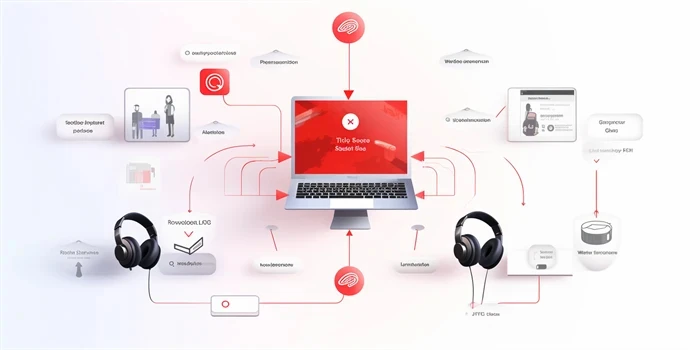In recent years, the threat of climate change and environmental degradation has become increasingly evident. As the world continues to face these pressing challenges, the role of artificial intelligence (AI) technology in creating a sustainable future cannot be understated. AI has the potential to revolutionize the way we tackle environmental issues, from resource management to pollution control. In this article, we will explore the various ways AI can contribute to solving environmental challenges and pave the way for a greener future.

1. Energy Efficiency Optimization
AI-powered systems can analyze massive amounts of energy data to identify patterns, optimize energy consumption, and reduce waste. This technology can be particularly helpful in industries where energy consumption is high, such as manufacturing and transportation. By optimizing energy usage and minimizing waste, AI can significantly contribute to reducing greenhouse gas emissions.
Furthermore, AI can assist in the development of smart grids that enable efficient distribution and management of energy resources. These grids can adapt to changing conditions and demand patterns, improving overall energy efficiency and reducing the need for additional power generation.
2. Natural Resource Management
AI can play a vital role in managing the Earth’s natural resources sustainably. By analyzing data from satellite imagery and ground sensors, AI tools can help monitor and predict changes in ecosystems, deforestation rates, and water quality, among other important factors.
Additionally, AI-powered systems can aid in agricultural processes by analyzing soil and weather conditions, optimizing irrigation, and reducing the use of fertilizers and pesticides. This not only benefits the environment but also improves crop yields and reduces costs for farmers.
3. Water Conservation and Pollution Control
Water scarcity and pollution are significant environmental challenges worldwide. AI technology can assist in water conservation efforts by analyzing data from sensors and weather forecasts to optimize irrigation systems. AI algorithms can determine the precise amount and timing of water required for crops, reducing water waste and ensuring sustainable water use.
In terms of pollution control, AI-enabled systems can monitor and analyze air and water quality data in real-time. This allows for the identification of pollution sources and the development of effective strategies for pollution prevention and mitigation.
4. Waste Management and Recycling
AI can revolutionize waste management systems by improving recycling processes and reducing the amount of waste sent to landfills. Intelligent sorting systems, powered by AI algorithms, can accurately sort and separate different types of waste for recycling. These systems can identify and sort materials such as plastics, metals, and paper, ensuring maximum reuse and minimizing environmental impact.
Furthermore, AI can assist in optimizing waste collection routes, reducing fuel consumption and carbon emissions associated with waste collection vehicles. By leveraging AI technology, waste management can become more efficient, cost-effective, and environmentally friendly.
5. Environmental Monitoring and Conservation
AI technology plays a crucial role in monitoring and conservation efforts, enabling real-time data collection and analysis. Drones equipped with AI systems can survey vast landscapes and collect data on endangered wildlife, deforestation, and illegal activities. This information helps conservationists and authorities take appropriate actions to protect ecosystems and endangered species.
AI can also aid in the analysis of genetic data, helping scientists identify species at risk of extinction and develop targeted conservation strategies. By combining AI’s computational power with biological research, we can make significant strides in preserving biodiversity and ecosystems.
6. Sustainable Transportation
AI can contribute to creating a more sustainable transportation system by optimizing traffic flows, reducing congestion, and minimizing fuel consumption. Intelligent transportation systems powered by AI algorithms can predict traffic patterns, optimize traffic signal timings, and enable efficient routing, resulting in reduced emissions and improved air quality.
Additionally, AI technology is driving the development of autonomous vehicles, which have the potential to revolutionize transportation. Self-driving cars and trucks can optimize routes, reduce fuel consumption, and improve road safety, thus mitigating environmental impact.
7. Climate Modeling and Predictions
AI technology can enhance climate modeling and predictions, improving our understanding of climate change and its potential impacts. AI algorithms can analyze vast amounts of climate data, including temperature records, ocean currents, and atmospheric conditions, to generate more accurate climate projections.
These climate models help policymakers and researchers develop strategies and policies to mitigate and adapt to climate change. By harnessing the power of AI, we can make informed decisions to create a more sustainable future.
Frequently Asked Questions:
Q: Can AI completely replace human intervention in environmental conservation efforts?
A: While AI technology can greatly enhance and streamline environmental conservation efforts, it cannot completely replace human intervention. Human involvement is necessary for decision-making, policy implementation, and ethical considerations.
Q: Are there any risks associated with the use of AI in environmental applications?
A: Like any technology, AI carries certain risks. These include the potential for biases in data, job displacement, and the concentration of power in the hands of a few organizations. It is crucial to implement AI technologies with appropriate safeguards and ethical guidelines.
Q: How affordable is AI technology for developing countries?
A: The affordability of AI technology depends on various factors, including infrastructure capabilities and access to resources for implementation. However, as AI continues to advance and becomes more widely adopted, its cost is likely to decrease, making it more accessible for developing countries.
Conclusion
AI technology holds immense potential in addressing environmental challenges and creating a sustainable future. By optimizing energy usage, managing natural resources, conserving water, improving waste management, aiding in conservation efforts, and enhancing transportation systems, AI can significantly reduce our environmental footprint. While challenges and risks exist, with proper guidance and ethical considerations, AI can be a powerful tool in mitigating climate change and creating a greener and more sustainable world.
References:
[1] The role of AI in creating a sustainable future – World Economic Forum – https://www.weforum.org/agenda/2020/07/role-of-ai-in-creating-a-sustainable-future/
[2] AI for Earth: Empowering people and organizations to solve global environmental challenges – Microsoft – https://www.microsoft.com/en-us/ai/ai-for-earth
[3] The future of AI in environmental protection – PwC – https://www.pwc.co.uk/four-aifor-the-environment


